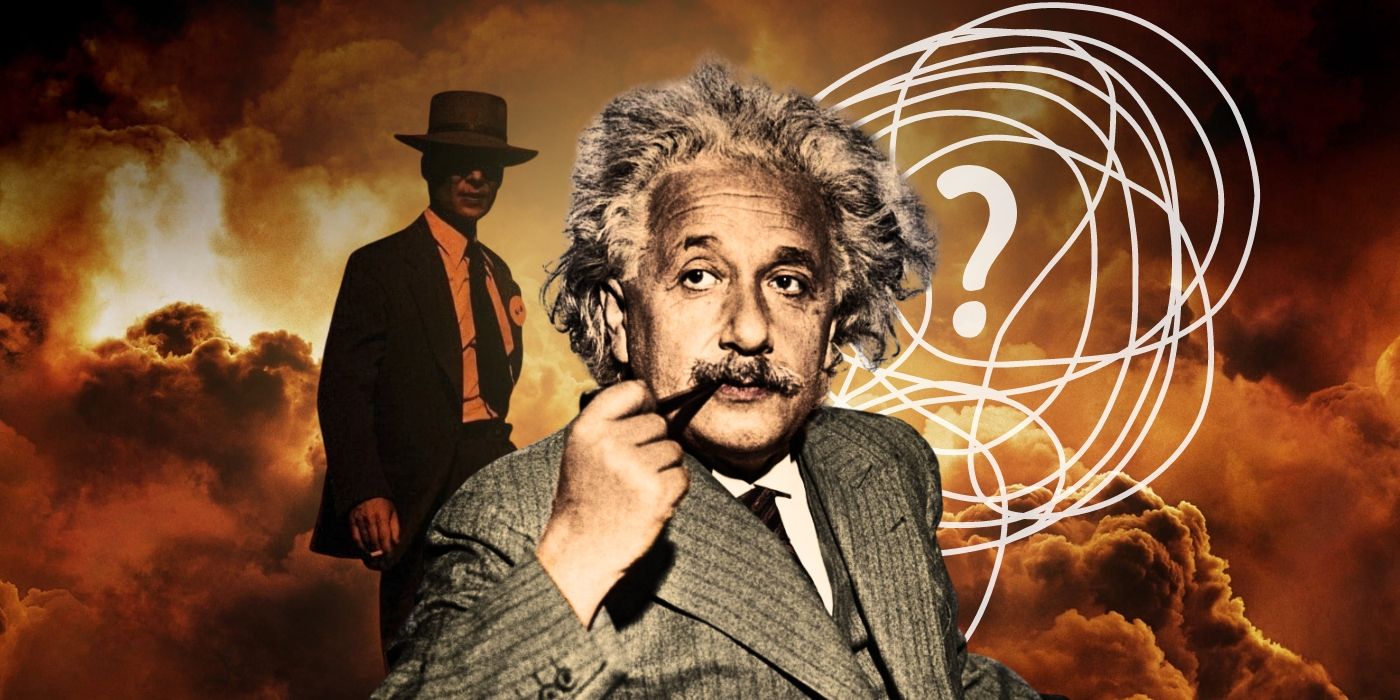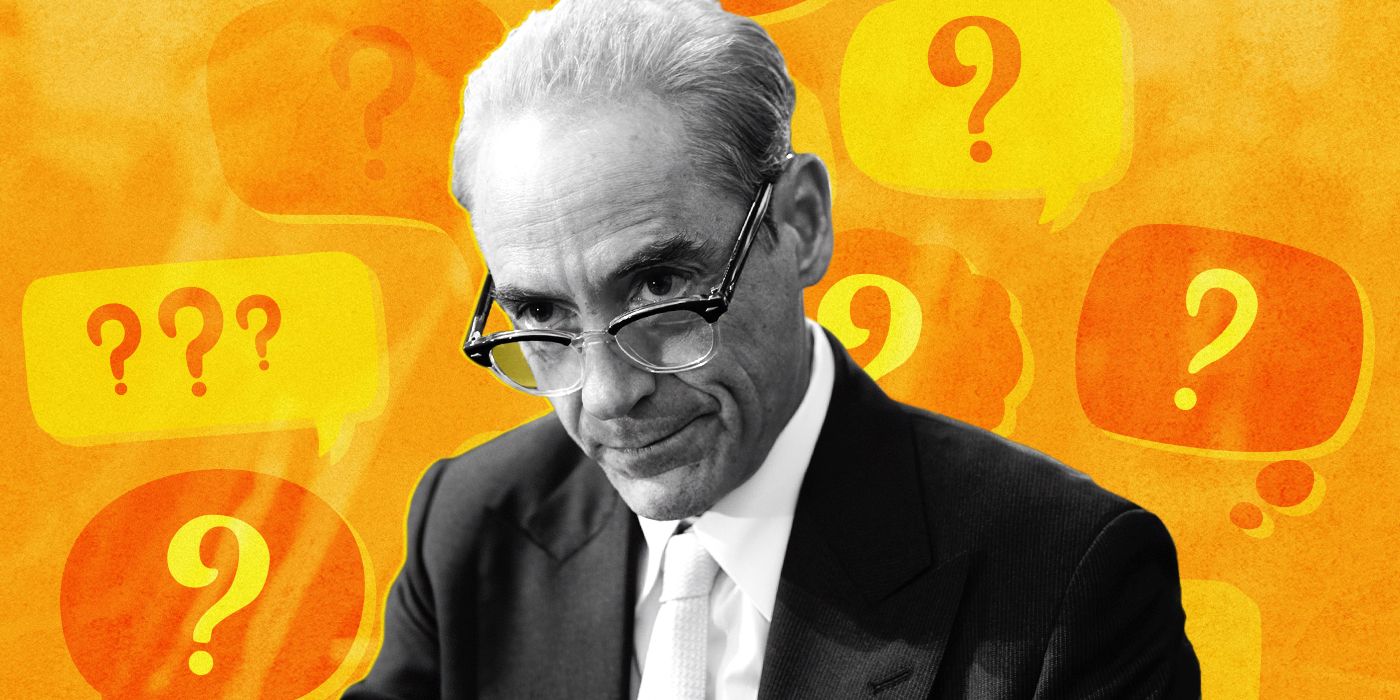The Big Picture
- Oppenheimer is the highly-anticipated biopic directed by Christopher Nolan about J. Robert Oppenheimer and the development of the atomic bomb.
- The film features a star-studded cast including Cillian Murphy, Florence Pugh, Emily Blunt, Matt Damon, and Robert Downey Jr.
- Lewis Strauss, portrayed by Downey, played a significant role in the development of the atomic bomb and later became a political rival of Oppenheimer.
Since the first trailer dropped, or even since news of this production first broke, movie fans were excited about the highly-anticipated biopic Oppenheimer, and the near-billion-dollar blockbuster did not disappoint with its thirteen Oscar nominations and seven wins. The Christopher Nolan-directed epic details the events surrounding J. Robert Oppenheimer and the development of the first atomic bomb that would be used against Japan to end World War II. It features an A-list ensemble led by Cillian Murphy — who won his first Oscar for the role — as the titular scientist tasked with the unenviable job of unleashing the power of the atom on humankind.
Of the many talented actors starring alongside Murphy is Florence Pugh as a psychiatrist, Communist Party member, and Oppenheimer's mistress, Jean Tatlock, and Emily Blunt as his wife, Kitty Oppenheimer. General Leslie Groves, the man who pushed everything through on the military side of things, is played by Matt Damon, and Robert Downey Jr. takes on the role of Lewis Strauss. Downey proved to have all the versatility to play the dynamic man who wore many hats, including that of a naval officer, financier, industrialist, and philanthropist who eventually found his way to the top of the Atomic Energy Commission. Now that Robert Downey Jr. has officially taken home the honor of Best Supporting Actor at the 96th Oscars, let's take a look back on the man who inspired this award-winning role.

Oppenheimer
The story of American scientist, J. Robert Oppenheimer, and his role in the development of the atomic bomb.
- Release Date
- July 21, 2023
- Director
- Christopher Nolan
- Cast
- Cillian Murphy , Matt Damon , Robert Downey Jr. , Emily Blunt , Alden Ehrenreich , Scott Grimes , Jason Clarke , Tony Goldwyn
- Runtime
- 180 minutes
Who Was Lewis Strauss?
Strauss was born in Charleston, West Virginia in 1896, almost 50 years before he gained nationwide notoriety for his role in the development of the first atomic bomb. Raised in Richmond, Virginia, Strauss rose to prominence working for Herbert Hoover after the First World War, providing assistance and relief with the firm Kuhn, Loeb & Co. It was during his 20s and 30s that the brilliant banker would accumulate most of his considerable fortune, which he would later use to advance issues that were important to him. One of his most important roles came in response to the rise of Hitler and the events surrounding WWII. As a member of the executive committee of the American Jewish Committee as well as several others, Strauss worked to make the transition from Europe into the United States easier for persons of Jewish heritage — particularly those who were fleeing the Third Reich and the horrific Nazi regime that came to power in the 1930s and early 40s. He also achieved the rank of Admiral in the Naval Reserve for his service from 1941 to 1945 and was awarded the Congressional Medal of Freedom.
What Was Strauss' Involvement in the Atomic Bomb Portrayed in 'Oppenheimer'?
Lewis Strauss was appointed by President Harry S. Truman as a founding member of the Atomic Energy Council, and would later serve as its chairman. The AEC was a countermeasure to the emergence of the Cold War in the late 1940s. According to the National Museum of Nuclear Science & History, he was one of the loudest proponents of staying ahead of the Soviet Union in the research and development of atomic energy, as well as pressing the need to keep American progress in the area as quiet as possible. This is the area where he is of great influence in Oppenheimer, as the overarching theme behind the secrecy of the American progress in the Fat Man and Little Boy bombs and the Manhattan Project became a critical aspect of its implementation — for better or worse.
Strauss was by no means a warmongering political hawk hungry to use the bomb, and was known for championing the peaceful use of atomic energy and how it could eventually become a widely used replacement energy source alternative to electricity. His presence in the film reflects the cautious optimism that Strauss had about the destructive power of what J. Robert Oppenheimer was in the process of creating. It wasn't until after the Soviet Union tested its first atomic bomb in 1949 that Strauss began a campaign for the development of thermonuclear weapons as a response. Oppenheimer was actually an outspoken opponent of Strauss' desire to harness the atom and eventually weaponize it.
Why Did Strauss and Oppenheimer Become Enemies?
According to the National Museum of Nuclear Science & History, after butting heads over the research and development of the hydrogen bomb, Strauss and Oppenheimer became political foes. Oppenheimer did not see the need to create such a deadly weapon and thought the prospect of its destructive power to be inhumane, but Strauss believed that not doing it would pose a certain national security threat from the Soviet Union and other countries already working to make the bomb. Strauss even went as far as appealing to then-president Dwight D. Eisenhower that he, “could not do the job at the AEC if Oppenheimer was connected in any way with the program.” The two would continue to spar over atomic energy over the next several years after the Manhattan Project and the deployment of the bombs on Japan in early August 1945.

The Real Story Behind Oppenheimer and Einstein’s Friendship
The movie didn't get everything right about these two scientists.Several years after the dropping of the atomic bomb, Oppenheimer was stripped of his security clearance for alleged Communist ties by the Atomic Energy Commission's Personnel Security Board. The committee that pulled his credentials was chaired by Strauss himself in a series of very public and controversial hearings that led him to be regarded by many as an unlikeable figure. Subsequently, when his nomination for U.S. Secretary of Commerce came before Congress, it failed to pass the Senate in June 1959. While Oppenheimer and Strauss became enemies, the men who played them, now two Academy Award winners, seem to be doing better than ever.




